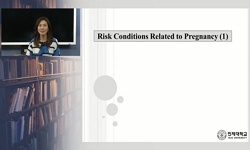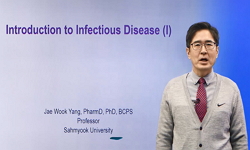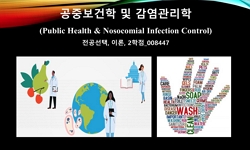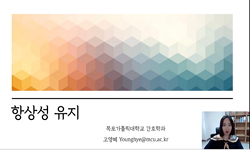Background: Periprosthetic infection after total knee arthroplasty is a challenging problem, and physicians should identify risk factors to decrease recurrence. However, risk factors for reinfection with two-stage reimplantation have not yet been well...
http://chineseinput.net/에서 pinyin(병음)방식으로 중국어를 변환할 수 있습니다.
변환된 중국어를 복사하여 사용하시면 됩니다.
- 中文 을 입력하시려면 zhongwen을 입력하시고 space를누르시면됩니다.
- 北京 을 입력하시려면 beijing을 입력하시고 space를 누르시면 됩니다.

Risk factors of uncontrolled periprosthetic knee joint infection after two-stage reimplantation
한글로보기https://www.riss.kr/link?id=A106882348
-
저자
Kim Du-Han (Keimyung University School of Medicine) ; 배기철 (계명대학교) ; Kim Dong-Wan (Keimyung University School of Medicine) ; Choi Byung-Chan (Keimyung University School of Medicine)

- 발행기관
- 학술지명
- 권호사항
-
발행연도
2020
-
작성언어
English
- 주제어
-
등재정보
KCI등재
-
자료형태
학술저널
- 발행기관 URL
-
수록면
22-22(1쪽)
-
KCI 피인용횟수
0
- DOI식별코드
- 제공처
-
0
상세조회 -
0
다운로드
부가정보
다국어 초록 (Multilingual Abstract)
Background: Periprosthetic infection after total knee arthroplasty is a challenging problem, and physicians should identify risk factors to decrease recurrence. However, risk factors for reinfection with two-stage reimplantation have not yet been well established. The purpose of this study was to assess treatment outcomes of subsequent twostage knee reimplantation and identify risk factors for uncontrolled periprosthetic knee joint infections.
Methods: We retrospectively reviewed 70 knees diagnosed with a periprosthetic knee joint infection treated with two-stage reimplantation between September 2011 and October 2016 at our institution. Patients in the controlled infection group (group C) required no further medication or surgical treatment within 2 years after reimplantation. Patients in the uncontrolled infection group (group U) displayed symptoms of active infection after resection arthroplasty or were reinfected after two-stage reimplantation. We compared group C and group U, and analyzed potential risk factors for uncontrolled prosthetic joint infection (PJI).
Results: Of 70 knees included in this analysis, 53 (75.7%) were clinically deemed free from infection at the latest follow-up. The remaining 17 knees (24.3%) required additional surgical procedures after two-stage reimplantation. Demographics were not statistically significantly different between the two groups. Wound complications were statistically more frequent in group U (p = 0.030). Pre-reimplantation C-reactive protein (CRP) was statistically different between groups C and U (0.44 and 1.70, respectively, p = 0.025). Among the cultured microorganisms, fungus species were statistically more frequently detected in group U compared with group C (p = 0.031).
Conclusions: The reinfection rate of our two-stage reimplantation protocol was 24.3% in the included cases. Wound complications, higher pre-reimplantation CRP levels, and fungus species were statistically more common in group U compared with group C. Our findings will help in counseling patients and physicians to understand that additional caution may be required when treating PJI if the aforementioned risk factors are present.
참고문헌 (Reference)
1 Petrikkos GL, "Value of measuring serum procalcitonin, C-reactive protein, and mannan antigens to distingush fungal from bacterial infections" 24 : 272-275, 2005
2 이용석, "Two-Stage Reimplantation in Infected Total Knee Arthroplasty" 대한슬관절학회 30 (30): 107-114, 2018
3 Bejon P, "Twostage revision for prosthetic joint infection : predictors of outcome and the role of reimplantation microbiology" 65 : 569-575, 2010
4 Mortazavi SM, "Two-stage exchange arthroplasty for infected total knee arthroplasty : predictors of failure" 469 : 3049-3054, 2011
5 Kuiper JW, "Treatment of acute periprosthetic infections with prosthesis retention : review of current concepts" 5 : 667-676, 2014
6 Jhan SW, "The risk factors of failed reimplantation arthroplasty for periprosthetic hip infection" 18 : 255-, 2017
7 Deelstra JJ, "Successful treatment of Candida albicans-infected total hip prosthesis with staged procedure using an antifungal-loaded cement spacer" 28 : 374.e5-374.e8, 2013
8 Ghanem E, "Staged revision for knee arthroplasty infection: what is the role of serologic tests before reimplantation?" 467 : 1699-1705, 2009
9 Abblitt WP, "Risk of periprosthetic joint infection in patients with multiple arthroplasties" 33 : 840-843, 2018
10 Minnema B, "Risk factors for surgical-site infection following primary total knee arthroplasty" 25 : 477-480, 2004
1 Petrikkos GL, "Value of measuring serum procalcitonin, C-reactive protein, and mannan antigens to distingush fungal from bacterial infections" 24 : 272-275, 2005
2 이용석, "Two-Stage Reimplantation in Infected Total Knee Arthroplasty" 대한슬관절학회 30 (30): 107-114, 2018
3 Bejon P, "Twostage revision for prosthetic joint infection : predictors of outcome and the role of reimplantation microbiology" 65 : 569-575, 2010
4 Mortazavi SM, "Two-stage exchange arthroplasty for infected total knee arthroplasty : predictors of failure" 469 : 3049-3054, 2011
5 Kuiper JW, "Treatment of acute periprosthetic infections with prosthesis retention : review of current concepts" 5 : 667-676, 2014
6 Jhan SW, "The risk factors of failed reimplantation arthroplasty for periprosthetic hip infection" 18 : 255-, 2017
7 Deelstra JJ, "Successful treatment of Candida albicans-infected total hip prosthesis with staged procedure using an antifungal-loaded cement spacer" 28 : 374.e5-374.e8, 2013
8 Ghanem E, "Staged revision for knee arthroplasty infection: what is the role of serologic tests before reimplantation?" 467 : 1699-1705, 2009
9 Abblitt WP, "Risk of periprosthetic joint infection in patients with multiple arthroplasties" 33 : 840-843, 2018
10 Minnema B, "Risk factors for surgical-site infection following primary total knee arthroplasty" 25 : 477-480, 2004
11 Sakellariou VI, "Risk factors for recurrence of periprosthetic knee infection" 30 : 1618-1622, 2015
12 Citak M, "Risk factors for failure after 1-stage exchange total knee arthroplasty in the management of periprosthetic joint infection" 101 : 1061-1069, 2019
13 Mortazavi SM, "Revision total knee arthroplasty infection : incidence and predictors" 468 : 2052-2059, 2010
14 Kubista B, "Re-infection after two-stage revision for periprosthetic infection of total knee arthroplasty" 36 : 65-71, 2012
15 Marculescu CE, "Polymicrobial prosthetic joint infections : risk factors and outcome" 466 : 1397-1404, 2008
16 Parvizi J, "Periprosthetic infection due to resistant staphylococci : serious problems on the horizon" 467 : 1732-1739, 2009
17 Kim TW, "Patientreported activity levels after successful treatment of infected total knee arthroplasty" 27 : 81-85, 2012
18 Parvizi J, "New definition for periprosthetic joint infection : from the Workgroup of the Musculoskeletal Infection Society" 469 : 2992-2994, 2011
19 Watts CD, "Morbid obesity : a significant risk factor for failure of two-stage revision total knee arthroplasty for infection" 96 : e154-, 2014
20 Jackson WO, "Limited role of direct exchange arthroplasty in the treatment of infected total hip replacements" 381 : 101-105, 2000
21 Peersman G, "Infection in total knee replacement : a retrospective review of 6489 total knee replacements" 392 : 15-23, 2001
22 Bongartz T, "Incidence and risk factors of prosthetic joint infection after total hip or knee replacement in patients with rheumatoid arthritis" 59 : 1713-1720, 2008
23 Ranawat C, "History of total knee replacement" 11 : 218-226, 2002
24 Salgado CD, "Higher risk of failure of methicillin-resistant Staphylococcus aureus prosthetic joint infections" 461 : 48-53, 2007
25 Mortazavi SM, "Failure following revision total knee arthroplasty : infection is the major cause" 35 : 1157-1164, 2011
26 Stambough JB, "Does change in ESR and CRP guide the timing of two-stage arthroplasty reimplantation?" 477 : 364-371, 2019
27 Parvizi J, "Diagnosis of infected total knee : findings of a multicenter database" 466 : 2628-2633, 2008
28 Jia YT, "Antibioticloaded articulating cement spacers in two-stage revision for infected total knee arthroplasty : individual antibiotic treatment and early results of 21cases" 15 : 212-221, 2012
동일학술지(권/호) 다른 논문
-
- 대한슬관절학회
- 장문종
- 2020
- KCI등재
-
- 대한슬관절학회
- Kyung-Ok Kim
- 2020
- KCI등재
-
Biomechanical function of the anterolateral ligament of the knee: a systematic review
- 대한슬관절학회
- Jin Kyu Lee
- 2020
- KCI등재
-
- 대한슬관절학회
- Kazumi Goto
- 2020
- KCI등재
분석정보
인용정보 인용지수 설명보기
학술지 이력
| 연월일 | 이력구분 | 이력상세 | 등재구분 |
|---|---|---|---|
| 2025 | 평가예정 | 해외DB학술지평가 신청대상 (해외등재 학술지 평가) | |
| 2022-01-01 | 평가 | 등재학술지 유지 (해외등재 학술지 평가) |  |
| 2020-01-01 | 평가 | 등재학술지 유지 (재인증) |  |
| 2017-01-01 | 평가 | 등재학술지 유지 (계속평가) |  |
| 2014-01-01 | 평가 | 등재학술지 선정 (계속평가) |  |
| 2013-01-01 | 평가 | 등재후보 1차 PASS (등재후보1차) |  |
| 2012-05-14 | 학술지명변경 | 한글명 : 대한슬관절학회지 -> Knee Surgery and Related Research외국어명 : journal of korean knee society -> Knee Surgery and Related Research |  |
| 2012-01-01 | 평가 | 등재후보학술지 유지 (기타) |  |
| 2011-01-01 | 평가 | 등재후보 1차 PASS (등재후보1차) |  |
| 2009-01-01 | 평가 | 등재후보학술지 선정 (신규평가) |  |
학술지 인용정보
| 기준연도 | WOS-KCI 통합IF(2년) | KCIF(2년) | KCIF(3년) |
|---|---|---|---|
| 2016 | 0.21 | 0.21 | 0.26 |
| KCIF(4년) | KCIF(5년) | 중심성지수(3년) | 즉시성지수 |
| 0.27 | 0.23 | 0.528 | 0.04 |




 KCI
KCI KISS
KISS






